Manage S3 buckets using the GUI
This page describes how to manage S3 buckets using the GUI.
Using the GUI, you can:
Create a bucket
Before you begin
S3 does not support creating buckets on filesystems with names containing the characters ' ', '(', ')', or '&'. Verify that the filesystem name excludes these characters. Rename the filesystem if needed before creating the S3 bucket.
Procedure
From the menu, select Manage > Protocols.
From the Protocols pane, select S3.
Select the Buckets tab.
Select +Create.
In the Add S3 Bucket dialog, do the following:
Bucket Name: Set a bucket name according to the naming conventions.
Filesystem: Set the filesystem to host the bucket.
Use Existing Directory: If you want to expose an existing directory, set its path. Make sure that the directory is not below the hierarchy of the already configured S3 bucket.
Hard Quota: Set the maximum capacity for the bucket. If you want to remove the hard quota setting, enter 0.
Bucket Policy: Select the policy to attach to the bucket: none, download, upload, public, or custom. If you select a custom policy, add it in JSON format.
Select Save.
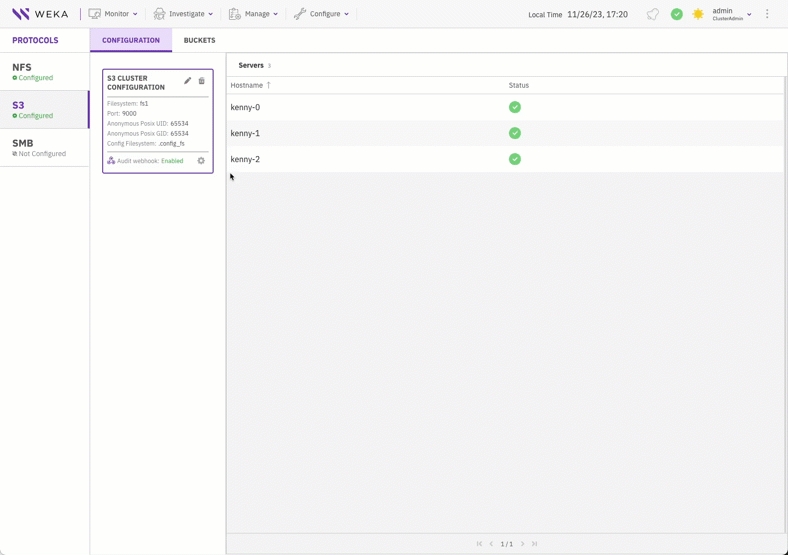
View a bucket details
You can view the details of the bucket.
Procedure
From the menu, select Manage > Protocols.
From the Protocols pane, select S3.
Select the Buckets tab.
Select the three dots of the bucket and select View.

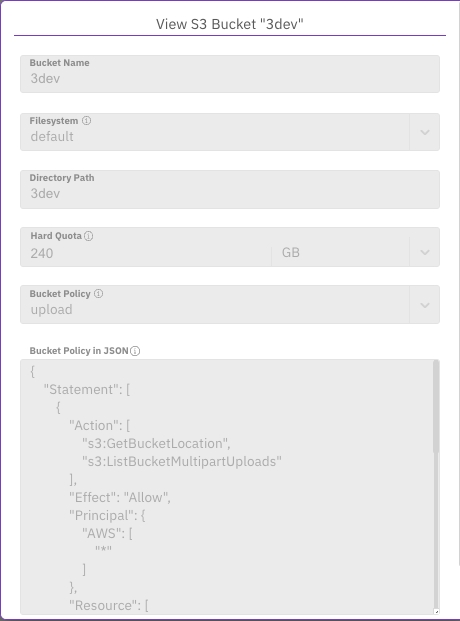
Edit a bucket hard quota
The hard quota determines the maximum capacity of the bucket. Initially, you can only set the hard quota for an empty bucket. If the hard quota of the bucket is already set, you can modify it or remove it.
Procedure
From the menu, select Manage > Protocols.
From the Protocols pane, select S3.
Select the Buckets tab.
Select the three dots of the bucket and select Edit Hard Quota.
Set the maximum capacity for the bucket. If you want to remove the hard quota setting, enter 0.
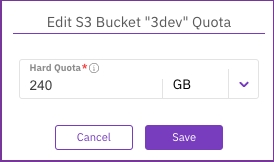
Edit a bucket policy
You can edit the bucket policy according to your needs.
Procedure
From the menu, select Manage > Protocols.
From the Protocols pane, select S3.
Select the Buckets tab.
Select the three dots of the bucket you want to delete, and select Edit Bucket Policy.
Select the policy to attach to the bucket: none, download, upload, public, or custom. If you select a custom policy, add it in JSON format.
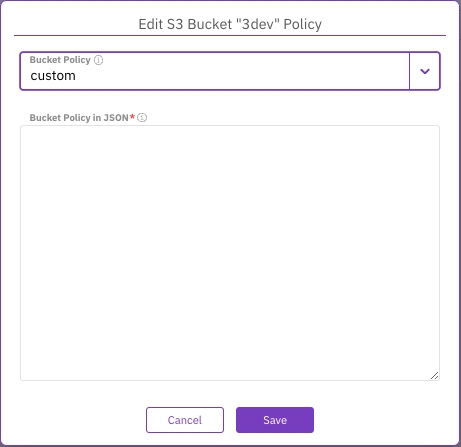
Delete a bucket
You can delete an existing bucket from the filesystem only if the bucket is empty. If the bucket is not empty, you can detach the bucket from the S3 configuration and keep the data and metadata in place. Consequently, you can recreate the bucket while preserving the data and metadata (see Create a bucket using the Use Existing Directory switch.
Procedure
From the menu, select Manage > Protocols.
From the Protocols pane, select S3.
Select the Buckets tab.
Select the three dots of the bucket you want to delete and select Remove.
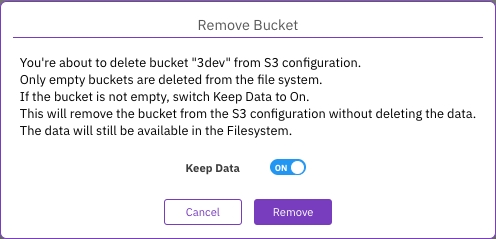
In the confirmation message, if the bucket is not empty, switch Keep Data to ON. Then, select Remove.